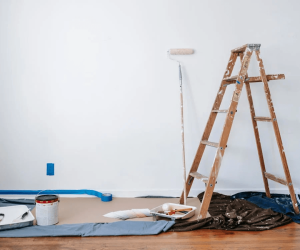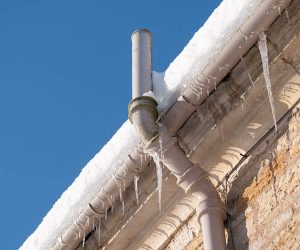Maintaining your plumbing system is crucial for the smooth operation of your home or business. A well-maintained plumbing system not only prevents costly repairs but also ensures that your water supply and drainage systems function efficiently. Whether you’re dealing with a residential or commercial property, neglecting plumbing care can lead to clogs, leaks, and even major water damage. To help you avoid these issues, here are six essential things to consider when taking care of your plumbing.

Regular Cleaning and Maintenance
One of the most important aspects of plumbing care is regular cleaning and maintenance. Over time, debris such as hair, soap scum, food particles, and grease can build up in your pipes, leading to clogs and slow drains. To prevent this, it’s essential to keep your drains clear and schedule routine maintenance checks.
For businesses, especially those in the food industry, maintaining grease traps is a critical part of plumbing care. Grease can cause major blockages if not handled properly. Engaging professional grease trap cleaners ensures that your system is free from harmful buildup that can lead to costly plumbing problems. Regular grease trap maintenance not only keeps your drains running smoothly but also prevents foul odors and ensures compliance with local regulations.
Be Mindful of What Goes Down the Drain
It’s easy to let things slip down the drain that shouldn’t be there, but this can lead to serious plumbing issues over time. In kitchens, avoid washing down grease, oils, and food scraps, as these materials can congeal and cause clogs in your pipes. In bathrooms, be cautious about flushing items such as wipes, cotton balls, and feminine hygiene products, as they do not break down easily and can block the plumbing system.
Using drain screens in sinks and showers is a simple and effective way to prevent debris from entering your pipes. This small preventive measure can help keep your drains clear and reduce the likelihood of future plumbing problems.
Watch for Leaks
Small leaks might not seem like a big deal, but they can cause significant damage over time. A leaking faucet or pipe not only wastes water but can also lead to water damage, mold growth, and higher utility bills. It’s essential to regularly inspect your plumbing system for signs of leaks, such as water stains on walls, ceilings, or floors, as well as damp or musty odors.
If you notice a leak, it’s best to address it immediately. In many cases, a quick fix can prevent larger issues down the line. If you’re unsure of the source of a leak or how to repair it, don’t hesitate to contact a professional plumber who can assess the situation and provide the necessary repairs.
Check Your Water Pressure
Water pressure is an often overlooked aspect of plumbing maintenance, but it plays a vital role in the health of your system. Low water pressure can be a sign of a hidden leak, a clogged pipe, or an issue with your water supply. On the other hand, excessively high water pressure can strain your pipes and lead to leaks, burst pipes, and unnecessary wear on your plumbing fixtures.
You can use a water pressure gauge to measure the pressure in your home or business, which should generally be between 40 and 60 PSI (pounds per square inch). If your water pressure is outside of this range, it’s a good idea to contact a plumber to diagnose and fix the issue before it leads to more serious problems.
Prepare Your Pipes for the Seasons
Your plumbing system is vulnerable to temperature changes, particularly during the colder months. Freezing temperatures can cause water in your pipes to expand, leading to burst pipes and costly water damage. To avoid this, it’s important to winterize your plumbing system by insulating exposed pipes and ensuring that outdoor hoses and faucets are drained and turned off before freezing weather arrives.
During the summer months, increased water usage can put extra strain on your plumbing system. It’s important to monitor your water usage and ensure that your plumbing is equipped to handle the demands of the season. Regular maintenance checks can help you spot any issues early and keep your system functioning smoothly throughout the year.
Schedule Professional Inspections
While regular DIY maintenance is important, it’s also essential to schedule professional inspections to ensure that your plumbing system is in good condition. A licensed plumber can identify issues that may not be visible to the untrained eye, such as hidden leaks, corrosion, or aging pipes. Professional inspections can help you address small problems before they become major issues, saving you time, money, and stress.
By investing in regular plumbing inspections and working with experienced professionals, you can prolong the lifespan of your plumbing system and avoid unexpected repairs.

Taking care of your plumbing system is essential for maintaining a functional, efficient home or business. From regular cleaning and maintenance to scheduling professional inspections, keeping your plumbing in top shape ensures that you avoid costly repairs and disruptions. By being proactive and attentive to your plumbing needs, you’ll keep your water flowing smoothly and prevent unexpected problems.



